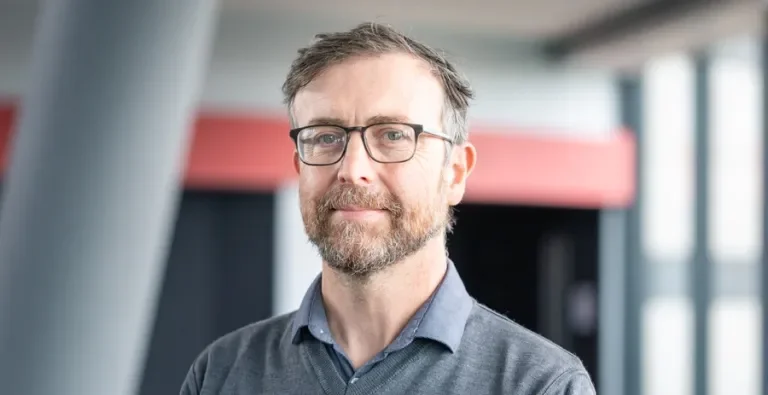

A more objective approach to measuring how we feel
Professor Tomas Ward, AIB Chair of Data Analytics at the School of Computing, DCU and a Funded Investigator with the Science Foundation Ireland Insight Centre for Data Analytics speaks to Spotlight on Research in advance of his inaugural lecture on Tuesday, March 5th in DCU.
What is the main aim of your research?
“I’m interested in using technology to measure human behaviour, health and performance. I try to get objective data on things that people might argue are quite subjective, their state of alertness or even their emotional state.
To do that, we use sensors that people can wear or that respond to changes in the environment.
We use artificial intelligence and machine learning and we try to learn about patterns in the data that can tell us something about how the person is feeling.”
Can you give us some examples?
“One interesting area is headaches – at the moment we rely on a person’s subjective experience to assess how much pain they are in.
If we could get more objective data using non-invasive ways to measure their brain activity over time, we could track that otherwise subjective experience of pain and compare it to the severity in other people.
That would be interesting in the context of looking at how people respond to pain medications.
Another example is anxiety - again it can be a difficult internal feeling for people to recognise and describe in themselves, so we try to get some hard and objective data.
To do that, we present people with decision- making games on their phones and see if we can use their responses as a way to capture how their current state of anxiety is affecting their behaviour.
By doing this we are able to track their anxiety and its changes over time.”
So it’s about getting objective data on what we probably process at some level in our brains, but maybe we don’t consciously register it?
“A lot of the time we rely on soft endpoints to know how a person is feeling, it’s not like measuring a molecule in their bloodstream. So yes, we are trying to harden the data using non-invasive measurements and artificial intelligence.”
Who takes part in the research?
“For studies where healthy volunteers take part, we advertise it through leaflets and people respond to that. In other studies, we work with patients, and we recruit them with the help of our collaborators in Ireland and abroad.
One example is where we are working with people who have survived stroke.
We are seeking to measure their emotional regulation, which is something that can be impaired and they may not be aware of it.”
How are you helping others to track how people feel on a large scale?
“I often get questions from doctors and medical researchers who want to collaborate, they ask if I can build an app, so I decided why not enable them to make their own apps.
With funding from Enterprise Ireland, I am working on a spin-out company to make it easy for people to design and deploy a mobile app to collect specific information about health.
This is something that researchers in the pharmaceutical industry could use to see how people are doing on the medications they make. The app can measure how people are taking the medication and how they are feeling, are they feeling better and are there side effects that patients report.”
What have you learned about yourself from your research?
“I think I have become more curious and attentive to my own subjective experiences, and I take more account of my internal state as it changes from day to day.”
What are your passions beyond doing researching in human behaviour, performance and health?
“I am really keen to reconnect people with maker culture and physical living, using our hands to make things rather than just sitting and typing or tapping as technology leads us to do today.
I’m a co-founder of Dublin Maker. We have an annual event where people who invent and make things display what they do and it’s a popular family day out in Dublin.
We are expanding now into advocacy and bringing making into other public spaces too, like libraries. I also enjoy retro computers from the 1980s and I’m a musician too. I have guitars stashed everywhere.”
